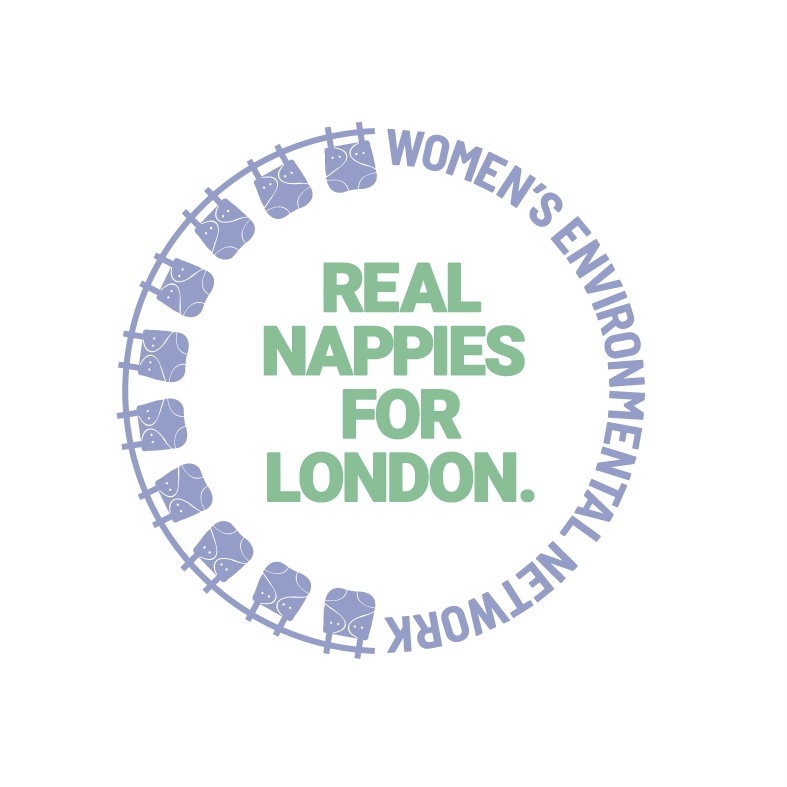On April 26th Real Nappies for London (RNfL) held a Breakfast Briefing to celebrate Real Nappy Week (23 – 29 April 2018). A number of key players involved in nappy waste reduction came together to discuss their incentive schemes and how they can play a vital role in helping to achieve Local Authority waste reduction and develop environmental and social values, which can be mutually beneficial to borough residents and Local Authorities.
Speakers included Alice Walker (Real Nappies for London), Charles Warner (researcher, University of Northampton), Madlyn Ray-Jones (Hackney Real Nappy Network), Guy Schanschieff and Kerry Cane (Bambino Mio) Bradley Williams and Graham Simmonds (Local Green Points).
The briefing allowed for an insight into how we can move the agenda of waste prevention forward and what the next steps can be. Charles Craft, who chaired the meeting, highlighted the following three as the next key steps in the shared goal of reducing single-use plastic nappy waste:
Knowledge and expertise through research
The briefing provided a space to discuss the two latest academic research findings from RNfL and Charles Warner that explore future waste prevention agendas through landfill reduction 2007-2012 and the contribution of RNfL to local authority waste prevention 2012-2016. Findings like these provide relevant research that allows us to promote meaningful data to support the financial and environmental benefits of the transition to reusable nappies. This is not only beneficial to individuals but to local authorities and others who can galvanise borough or national behaviour change. Payback ratios of 10 or 11 to 1, coupled with data of 1 tonne of disposal avoidance per child and the associated reduction in spend from the public purse can be presented authoritatively to promote the economic argument to support reusable nappies.
Innovation in local promotion and awareness
Local promotion and awareness of waste prevention and reusable nappies at all scales demonstrates that a positive message can be delivered where it matters most. This innovation in how we raise awareness can widen the sphere of interest, allowing those who may not have previously thought they could make the change to reusables feel comfortable and supported in doing so. Groups such as Hackney Real Nappy Network show willingness to link with key influence groups – midwives, NHS, parent and toddler groups, especially close to and in facilities used by the end user group.
Viable alternative eco-friendly products are now widely available and the image of re-useable nappies as a terri and a safety pin can be challenged quickly and persuasively. Especially seen by Bambino Mio, who provide a range of products including reuse swimming aids and products to support swift transition to toileting, which can be easier to use and promote swifter independence appeal to a wider audience and make the issue more widespread and appealing.
Extended and forward-thinking media presence to reach a wider audience.
Whether led by manufacturers promoting products, boroughs engaging residence through wider re-use and reward schemes such as RNfL and Local Green Points (with a staggering 15-25,000 residents per borough engaged) or local community groups, the exposure and differing audiences each scheme provides is vital in reaching a wider potential audience.
Overall the motivation and coordination of all these incentives are key in moving the agenda of waste prevention forward. Policy makers can affect the environment to deliver this model of sustainable change and through RNfL there is the opportunity to provide partnership opportunities to deliver that desired change. The ambition to motivate this change has aided to RNfL becoming a stable, well organised and focussed community based organisation capable of delivering support and assured quality of administration to deliver change in the sector. With over 10 years continual development there is vision and capability to deliver so much more.
